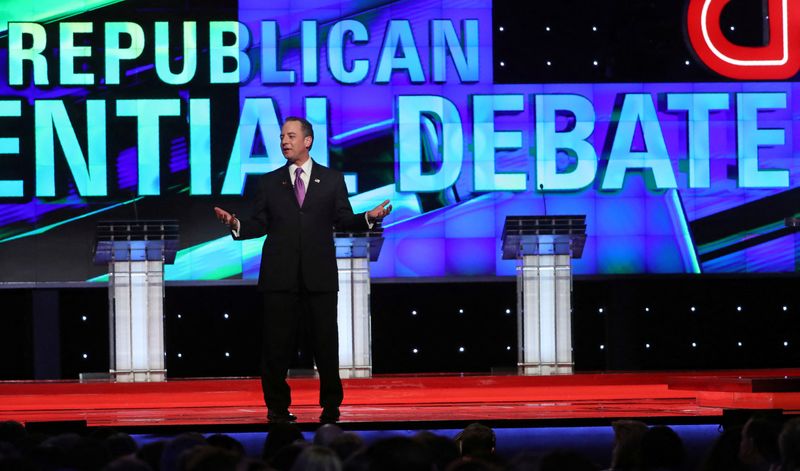Investing.com’s stocks of the week
By Gram Slattery and Nathan Layne
WASHINGTON (Reuters) - The Republican National Committee on Friday announced relatively stringent limits on who can participate in the first 2024 presidential primary debate, posing a potential challenge for several long-shot contenders.
The RNC, the Republican Party's governing body, will also require all attendees to support the eventual Republican nominee, the body said on Friday. The pledge requirement is notable as former President Donald Trump, who leads in the polls, has neither promised to support a nominee, nor has he confirmed he will attend the debates.
The debate rules will require a candidate to reach 1% support in three national polls and register 40,000 individual donations in order to qualify for the debate in Milwaukee, which is set for Aug. 23.
Candidates also will need to receive donations from at least 200 unique donors per state in at least 20 states and territories, the RNC said.
As an alternative to reaching 1% in three national polls, the RNC said candidates can instead reach 1% in two national polls, as well as 1% in at least one statewide poll in Iowa, New Hampshire, South Carolina or Nevada, states that hold their votes early in the nominating process.
The rules are almost certain to limit the number of candidates on the debate stage relative to previous election cycles. During the 2016 Republican presidential nominating process, for instance, some 17 candidates participated in the first debate.
Reaching the debate stage is seen as key for primary candidates - particularly those with low name recognition. Failing to make the cutoff for a debate is often a death knell for campaigns.
There are several long-shot candidates who may struggle to reach the needed thresholds, such as North Dakota Governor Doug Burgum and businessman Perry Johnson.
In addition to Trump, Florida Governor Ron DeSantis, former South Carolina Governor Nikki Haley and U.S. Senator Tim Scott will almost certainly clear to threshold.
The RNC's arrangement may allow them to take on Trump without also deflecting attacks from several low-profile contenders, advisers said.
